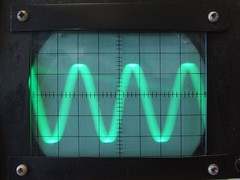 A study shows that dyslexia affects more than a child’s ability to read printed text. It also affects how the brain processes speech, and the perception of how words are put together. This could lead to different ways for teachers to work with children who are dyslexic.
A study shows that dyslexia affects more than a child’s ability to read printed text. It also affects how the brain processes speech, and the perception of how words are put together. This could lead to different ways for teachers to work with children who are dyslexic.
A study that was done by researchers at the Massachusetts Institute of Technology has revealed some interesting discoveries about dyslexia. It has been known for quite some time that children who have dyslexia tend to mix up letters, (for example, confusing the letter d with the letter b), and to misunderstand what the word that they are trying to read actually is.
The study shows that dyslexia also affects how these children’s brains actually process speech. It also affects how the brain puts together words from smaller units of sound. Researchers found that people who have dyslexia have a greater difficulty recognizing voices than do people who do not have this particular learning disability.
As an adult who is dyslexic, I feel as though this study explains a lot of what I have personally experienced, but couldn’t find the words to explain.
In order to do this study, researchers gathered two groups of people. One group was made up of adults who had dyslexia. The other group, the “control group”, consisted of adults who did not have dyslexia. Each group listened to a series of prerecorded voices that were connected to a cartoon avatar that appeared on a computer screen. Later, individuals in the study had to match the voices to the correct cartoon avatar.
This process was done twice. First, the cartoon characters were “speaking” English. The next time the cartoon character were “speaking” Mandarin, instead. The purpose of selecting Mandarin was to ensure that the participants in the study would be working with a language that they did not understand.
The “control group” was able to match the correct English speaking voice to the right cartoon avatar about 70% of the time. This group also managed to correctly connect the right Mandarin speaking voice to the right cartoon avatar 50% of the time. The group that had dyslexia, on the other hand, was only able to match the right avatar to the correct voice 50% of the time, no matter if the language they were listening to was English or if it was Mandarin.
The results of the study point out that adults and kids who have dyslexia are experiencing a difficultly in getting the sounds of speech to connect with the meaning of words. This is likely why kids with dyslexia will sometimes accidentally substitute a word with a different word that sounds phonetically similar, but that has a completely different meaning.
For example, let’s say you just served lunch to two children. One has dyslexia, and the other does not. The child without dyslexia will look at the soup he is about to eat and say: “I need a spoon”. The child with dyslexia, on the other hand, might say “I need a soup.” instead. The two words sound similar. The kid with dyslexia likely won’t realize the verbal mistake he has made.
Dyslexics also have trouble with language retrieval. Teachers tend to think that when a child is called on, and hesitates, it means that he doesn’t know the correct answer to the question. Instead, it could be that the dyslexic child is struggling find the right word for the image in his head (that is of the correct answer).
Image by Tess Watson on Flickr

